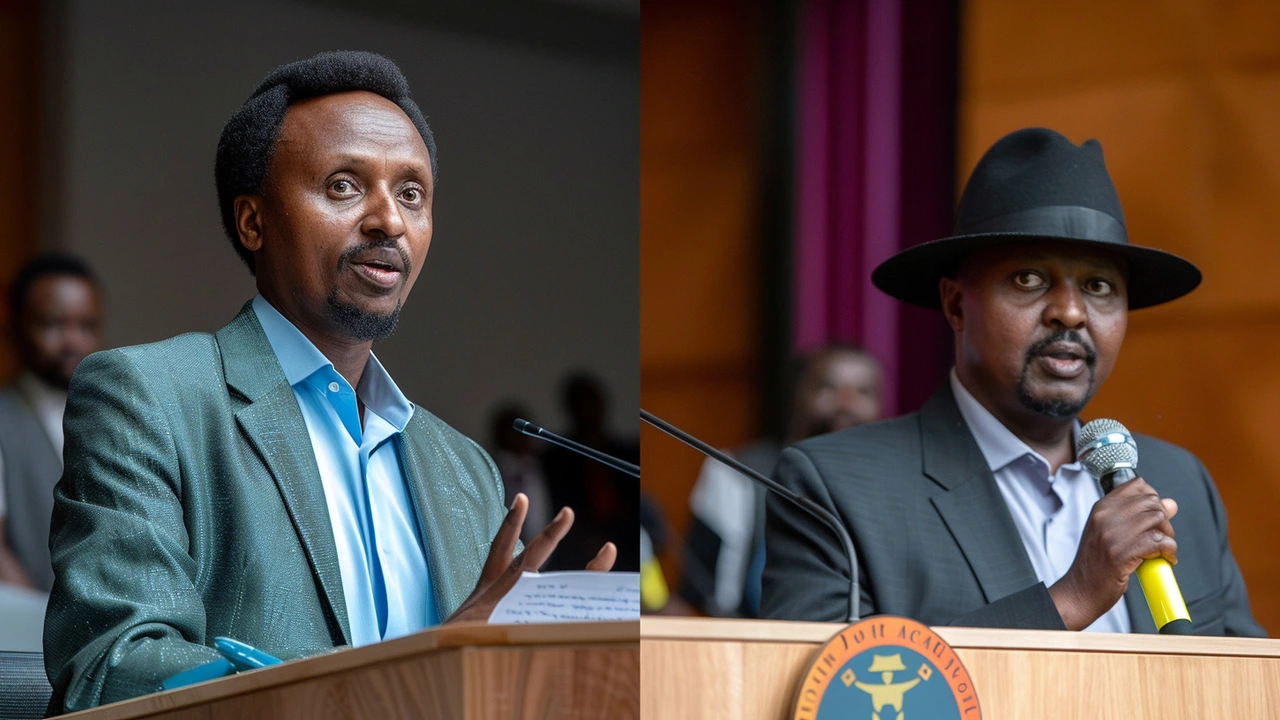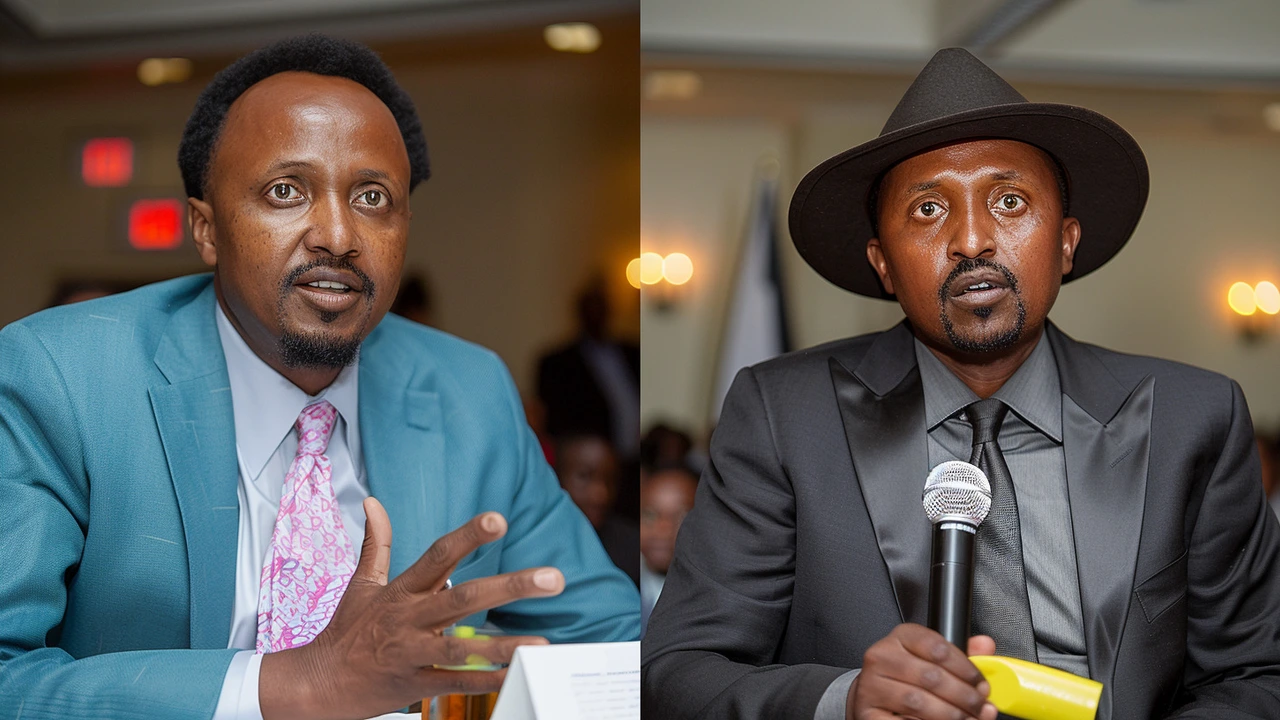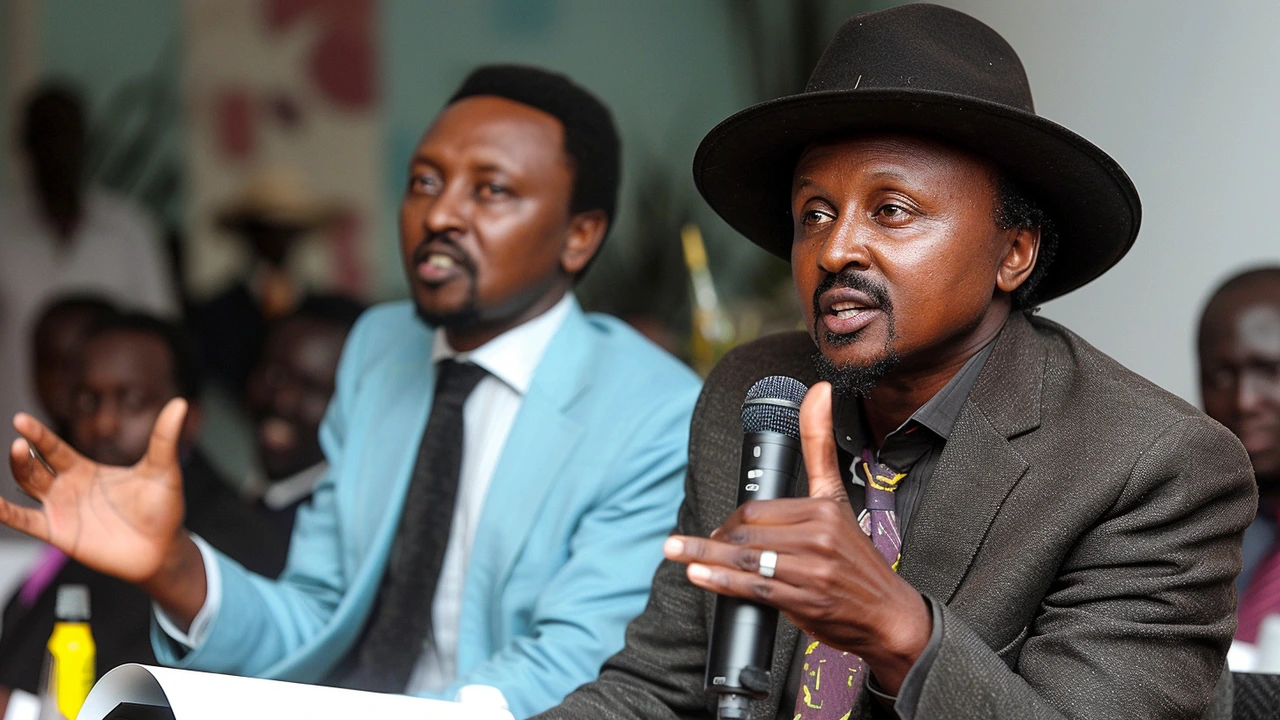Political Tensions Within UDA Escalate
The United Democratic Alliance (UDA) is facing a whirlwind of internal conflicts, with the latest episode involving Kiambu Senator Karungo Wa Thang'wa demanding an apology from Kapseret MP Oscar Sudi. The feud ignited after Sudi made disparaging comments about Members of the County Assembly (MCAs), referring to UDA Secretary General Cleophas Malala scornfully as an 'elevated MCA.' Thang'wa, in response, firmly stated that MCAs are respected individuals who deserve recognition and respect for their contributions to governance.
Origin of the Controversy
The origins of this controversy trace back to a broader issue within the party. Sudi’s remarks cast a shadow over the contributions of MCAs, several of whom have ascended to significant political roles. Senator Thang'wa highlighted that many current Senators and even the Governor of Isiolo are former MCAs, underscoring the importance of these positions in the political landscape. The insinuation that being an MCA is somehow a lesser role did not sit well with Thang'wa, who insisted on an apology from Sudi to rectify the affront.
Broader Implications Within the Party
This incident is not an isolated one but part of a series of growing tensions within the UDA. The friction comes at a time when Secretary General Cleophas Malala has been issuing stern warnings to various party figures. Malala has cautioned Sudi, Nyeri Governor Mutahi Kahiga, and Githunguri MP Gathoni Wa Muchomba, instructing them to refrain from criticizing the party leadership or face disciplinary measures. It demonstrates a significant effort by Malala to tighten control and consolidate unity within the UDA ranks.
Additionally, Malala extended warnings to Cabinet Secretaries Kipchumba Murkomen and Moses Kuria, advising them to abstain from engaging in political endeavors and focus on their administrative duties. He also reminded the younger UDA politicians to prioritize public service delivery over premature campaigning for the 2027 elections. This stark and stringent reminder appeared to be an attempt to stifle any form of early electioneering, preserving the stability ahead of future political contests.

Reactions from Key Figures
The friction within the UDA is not merely a clash of personalities but reflects deeper ideological splits and differing visions for the party's future. Reactions from various figures have highlighted the party's fragile unity. While some have voiced support for Malala's attempts to enforce discipline, others have seen it as an overreach and a stifling of political expression.
Oscar Sudi, in his defense, has maintained that his comments were taken out of context and not intended to demean MCAs or any political positions. However, his insistence has done little to assuage the concerns raised by Thang'wa and others who view the remarks as part of a larger disregard for certain party members.
Implications for the UDA’s Future
The unfolding drama within the UDA points to potential challenges the party may face as it prepares for future elections and governance. Internal discord can weaken party cohesion and distract from broader strategic goals. For a political entity seeking to hold or gain power, unity and clarity of purpose are paramount, and the current skirmishes threaten to destabilize these efforts.
Political analysts argue that the UDA must navigate these turbulent waters carefully to avoid alienating key factions and leaders. The party’s ability to reconcile differences and present a united front will be critical to its success in forthcoming political battles.
The Role of Leadership in Resolving Conflict
As the drama unfolds, the role of the UDA’s leadership in addressing and diffusing this conflict cannot be overstated. Secretary General Cleophas Malala's approach has been both firm and controversial, reflecting the delicate balance required to manage divergent interests within a political party. Ensuring that all voices are heard while maintaining discipline will be a test of his leadership capabilities.
Other senior leaders within the UDA may also need to step in to mediate and bridge gaps among party members. Effective conflict resolution strategies and a commitment to inclusive dialogue could pave the way for a more harmonious and focused political movement. As the situation develops, the party's future may very well hinge on its ability to navigate internal strife and emerge stronger and more united.

Conclusion
The demand for an apology from Oscar Sudi by Kiambu Senator Karungo Wa Thang'wa is a clear indication of the rising tensions within the UDA. This episode reflects broader issues of respect, recognition, and unity within the party. As the party leadership grapples with these challenges, the potential impact on their political future remains to be seen. How the UDA addresses and resolves these internal conflicts will determine its trajectory and cohesion in the coming years.

Amar Yasser
May 31, 2024 AT 06:38Steven Gill
June 1, 2024 AT 18:53Saurabh Shrivastav
June 2, 2024 AT 23:16Prince Chukwu
June 4, 2024 AT 20:14Divya Johari
June 5, 2024 AT 08:13Aniket sharma
June 6, 2024 AT 22:21Unnati Chaudhary
June 8, 2024 AT 19:28Sreeanta Chakraborty
June 9, 2024 AT 21:12Vijendra Tripathi
June 11, 2024 AT 06:51ankit singh
June 13, 2024 AT 04:21Pratiksha Das
June 15, 2024 AT 02:43ajay vishwakarma
June 16, 2024 AT 22:54devika daftardar
June 18, 2024 AT 06:20fatima almarri
June 19, 2024 AT 14:28deepika singh
June 20, 2024 AT 20:44amar nath
June 21, 2024 AT 21:53Pragya Jain
June 23, 2024 AT 04:26Shruthi S
June 23, 2024 AT 06:45